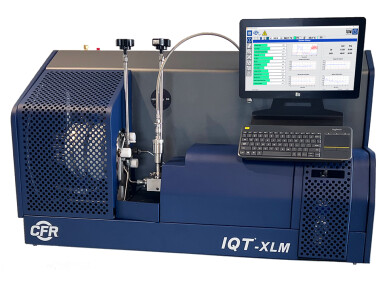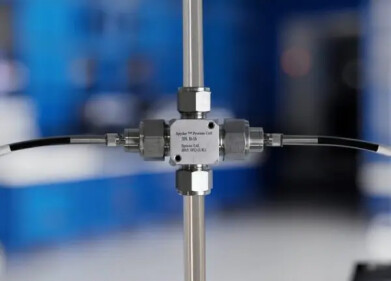Analytical Instrumentation
Core analysis pressure regulator
May 14 2018
Nano-Flows For Oil and Gas Reservoir Exploration
The Oil and Gas Industry has special requirements for back pressure regulators for conducting core analysis of rock samples (core plugs). In conventional core analysis, samples are analysed to determine hydrocarbon content that can be evolved at different temperatures and at differing time periods whilst maintaining a pressure consistent with the reservoir’s overburden. In core flooding analysis, the rock’s permeability to gas, oil, and brine is measured.
Back pressure regulators are a key component of many core analysis applications. While some core analysis experiments use inert gas flow through the sample to transport the hydrocarbons, many other core analysis applications require that the sample reactor maintain a constant pressure under no-flow conditions. For example, a rock sample may evolve no gases or hydrocarbons during the early part of a temperature ramp, but later evolve significant flows of condensable hydrocarbon gases as the temperature ramps up.
A back pressure valve is often located downstream of the core sample reactor to maintain the “overburden” pressure. The ideal BPR can hold the reactor pressure at a very stable pressure even as the flow rates vary from true zero flow up to high flow rates (typically tens or hundreds of ml/min).
Unfortunately, most existing back pressure regulators either cannot hold stable pressure under zero-flow conditions, or they cannot provide stable inlet pressures as flow is initiated and increased.
Slim-Tube Testing
Another key use of Equilibar back pressure regulators in the arena of reservoir testing is slim-tube testing. As explained in Schlumberger’s Glossary, this test is used to determine the minimum miscibility pressure (MMP) or minimum miscibility concentration (MMC) of injection solvents in selected reservoir oil. Fluids are injected into a long coil of tubing packed with sand; the back pressure regulator is key to maintaining the coil pressure at the specified values.
The high precision and two-phase tolerance of the Equilibar can improve the performance of the slim-tube test apparatus. An Equilibar BPR can be used at pressures up to 10,000 psig.
Equilibar’s Zero-Flow Back Pressure Regulator
The Equilibar ZF Series are specifically designed to address the challenging requirements of the reservoir testing industry. The ZF (“Zero Flow”) Series regulators hold inlet pressures stable within about 0.5% from true bubble-free zero flow, up to the range of 1 liter/minute.
The ZF1 regulator has been proven to address critically challenging and previously impossible applications in core analysis and other research applications requiring micro-flow pressure control.
A soft-seal elastomeric o-ring is used to accomplish the ultra-tight closure in the ZF. Viton is standard, with FFKP also in stock. The ZF is available SS316 (standard) or other alloys such as HastelloyC. Although standard fittings are NPT, other options available include low dead-volume style HPLC (Valco-style) fittings or Autoclave Engineer style.
For further information please click here.
Digital Edition
PIN 25.5 Oct/Nov 2024
November 2024
Analytical Instrumentation - Picturing Viscosity – How Can a Viscometer or a Rheometer Benefit You? - Sustainable Grease Formulations: Evaluating Key Performance Parameters and Testing Method...
View all digital editions
Events
Dec 03 2024 Dusseldorf, Germany
Dec 08 2024 Anaheim, CA, USA
Turkey & Black Sea Oil and Gas
Dec 11 2024 Istanbul, Turkey
Dec 19 2024 Aurangabad, India
Jan 20 2025 San Diego, CA, USA





















